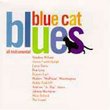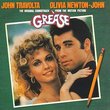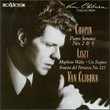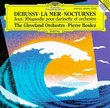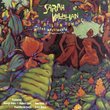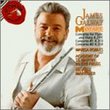| All Artists: Johannes Brahms, Herbert von Karajan, Berlin Philharmonic Orchestra Title: Brahms: Symphonies Nos. 2 & 3 Members Wishing: 0 Total Copies: 0 Label: Deutsche Grammophon Release Date: 5/1/1990 Genre: Classical Styles: Historical Periods, Modern, 20th, & 21st Century, Symphonies Number of Discs: 1 SwapaCD Credits: 1 UPC: 028942915329 |
Search - Johannes Brahms, Herbert von Karajan, Berlin Philharmonic Orchestra :: Brahms: Symphonies Nos. 2 & 3
 | Johannes Brahms, Herbert von Karajan, Berlin Philharmonic Orchestra Brahms: Symphonies Nos. 2 & 3 Genre: Classical
There's no rule that a conductor's latest recording will necessarily be his best--in fact the opposite is usually the case. But here's the exception that proves the rule. Herbert von Karajan recorded the Brahms symphonies ... more » |
Larger Image |
CD DetailsSynopsis
Amazon.com There's no rule that a conductor's latest recording will necessarily be his best--in fact the opposite is usually the case. But here's the exception that proves the rule. Herbert von Karajan recorded the Brahms symphonies three times for DG, never very successfully, until his last go-round proved that he could play this music with sympathy and style. Since the coupling is unique, and generous, if you're looking for these two works, this disc will certainly please. --David Hurwitz Similar CDs
Similarly Requested CDs
|
CD ReviewsKarajan in Brahms--early or late? Santa Fe Listener | Santa Fe, NM USA | 11/02/2005 (5 out of 5 stars) "Note: I think that the review below may still be useful, but DG has remastered and reissued this CD in much better sound, as of Jan. 2008) Contrary to the Amazon reviewer's nonsense, Karajan was the pre-eminent Brahms conductor of the postwar era, rivaled only by Klemperer and perhaps Celibidache or late Bernstein. Here we have half of his 1963- 1964 cycle at budget price (though not remastered, I assume) to compare with his digital cycle from the late Eighties. Since both the Second and Third Sym. are involved, I'll be briefer than when I compared the First and Fourth, each given its own disc. Sound: Judging from their beautifully remastered version of the First from 1964, DG could have done wonders with the Second and Third, too. But they didn't. Despite the natural perpective from just a bit closer than mid-hall, the upper strings are scratchy and shrill at higher volumes. The later digital sonics are much warmer, closer miked, and with greater impact. If only the earlier recording didn't sound so rackety. Tempos: Karajan knew what he wanted in Brahms and didn't tend to change his interpretations. Timings in the Second Sym. are nearly identical early and late, though Karajan is a minute faster in the second movement later on--this is characteristic of him. In the Third he adheres closely to the same tempos set in 1964. Neither is on the slow side by comparison to most other conductors. Interpretation: Despite his reputation for becoming sleek and glib in late life, Karajan was a towering Brahms conductor; if anything, he wanted more urgency and intensity later in life. His propulsive view of Brahms is the opposite of Furtwangler's highly personal and much slower style. In 1964 Karajan conducted a fine Second, but his 1986 reading blazes brighter and higher: it's one of the absolute best on record, full of energy and orchestral magnificence. Quite impressive in a symphony where too many conductors dawdle nostalgically. I don't hear a big difference between the 1964 Third and its digital follow-up in 1988, a year before Karajan's death. It's generally agreed that this was the strongest of Karajan's Brahms, and both readings are passionate, huge in scale, propulsive, and incredibly exciting. There's nothing to touch them, really, and only the better sonics from 1988, plus a tuoch more urgency, gives it the nod. Overall, this is a great CD that no other Brahms conductor can match in terms of intensity except Toscanini and in terms of emotional involvement except Furtwangler. It's a shame that DG hasn't done the right thing and given these performances the remastering they deserve. (And a further shame that the Amazon reviewer is so galling in his dismissal of profound music-making.)" Karajan: 5 stars; Remastering: 1 star John Grabowski | USA | 08/03/2003 (3 out of 5 stars) "First of all, ignore Hurwitz (always a good idea in any case). This is not Herbie's last cycle (nor is his last cycle, when Herbie was half deaf and half dead, his best). Nor is it, as some reviewers below have said, his first. (That's on EMI.) As far as I can tell, this his second, though his first for DG. This is one of my very favorite recordings of No. 2 out there. Karajan is often accused of being too soft-edged and thick with the strings, but this is, to my ears, just what the doctor ordered for the Second, and those glorious Berlin strings shine. (Somehow British or American or Russian ochestras can't compete in this kind of music.) Karajan has a great sense of the architecture of this music; be forwarned he does not take repeats, but I don't care, I don't feel it diminishes this performance. In fact, Brahms himself, near the end of his life, begged a conductor to omit the repeats in a performance of the second symphony. The conductor was surprised, because at the premiere Brahms had taken them all. Brahms supposedly replied, "No one knew the tunes then." But we all know the tunes now. And what glorious tunes they are. Some conductors almost seem embarrassed to take the Big Themes in all their glory, as though this symphony is too naive or something. Well, that was the essence of Brahms--a crotchety old guy who was really a big softie at heart. And that heart is on his sleeve in this work. The Finale is the most exuberant, thrilling reading I've ever heard (save for another, earlier Karajan perfomrnace, on EMI.) The energy is exhilerating; this is Brahms in love with the world. The 3rd symphony is less successful, but that's not surprising. There are few recordings in existence where the conductor seems to know what to do with this enigmatic work. Even the great Furtwangler couldn't seem to decide if this is an intimate or thunderous work. The only conductor who has gotten this just right of all the recordings I've heard (Jochum, Solti, Barenboim, Masur, Furtwangler, Karajan, Bernstein, Mengelberg) is Mravinsky, with the former Leningrad Philharmonic, on BMG/Melodiya. Yet, I can't put into words *why* that recording works so well, so I've yet to review it. Now for the bad news. The sound on this issue is awful--fuzzy and distant. I used to have this on scratchy used vinyl (original issue) and, pops and clicks aside, that sounded better than this CD, so I tried to ignore the pops and listened to the vinyl rather than this CD. But there is hope! There's a French version of this very same pairing that has excellent sound. It comes in a yellow cardboard sleeve and the notes are entirely in French. And the good news is Amazon is now carrying it--for a long while it didn't. Hear the same music that's here, only remastered *properly.* I've reviewed that better set elsewhere, so if you think you're interested, just go to "See all of my review" and search for it. Happy listening. " Simply the Best ever committed to record. David Lee | Canada | 05/26/2004 (5 out of 5 stars) "I have so long tired of these works...they are overdone, overplayed and in many ways become a dull and lackluster experience to any classical listening/musician. However, Karajan has an approach which some may considered controlled yet he allows phrases to breathe and in many ways emote which conductors like Szell can only dream of touching in this repetoire. Proof is in the Second symphony at the end towards the coda(First movement). The warmth of playing coupled with such lack of affectation as well as the tremendous feeling of flow of the coda IS the most satifying ever put to disc ever. Karajan in Brahms is truly a giant and stands way above any other conductor of the 20th Century."
|

 Track Listings (8) - Disc #1
Track Listings (8) - Disc #1
